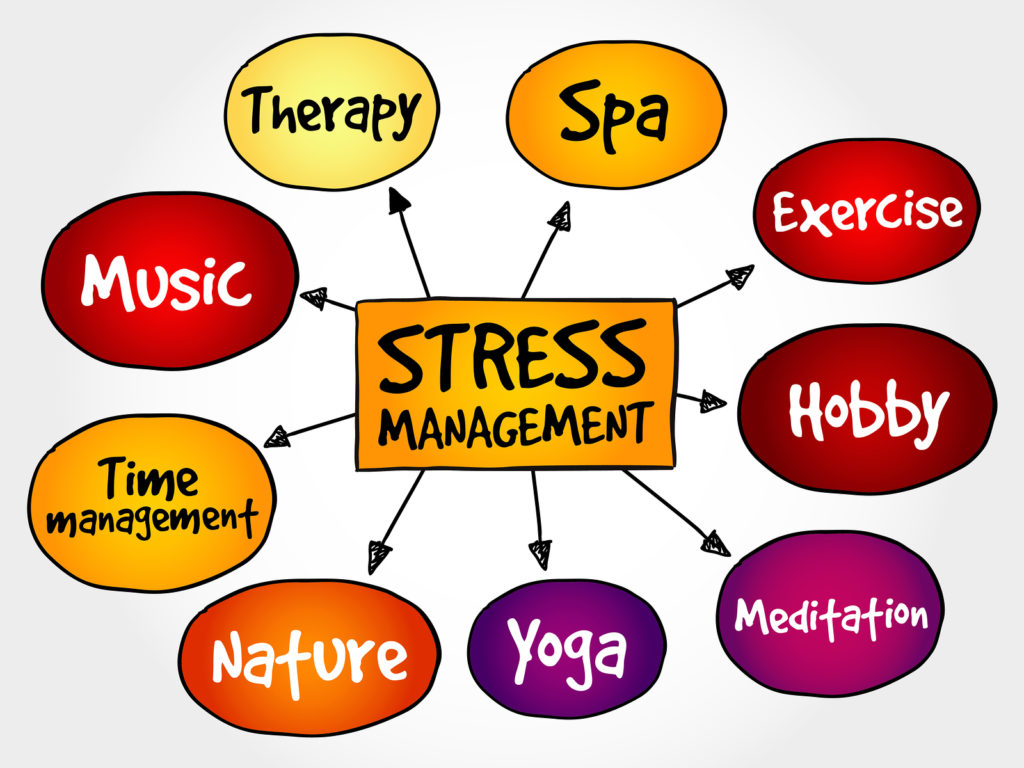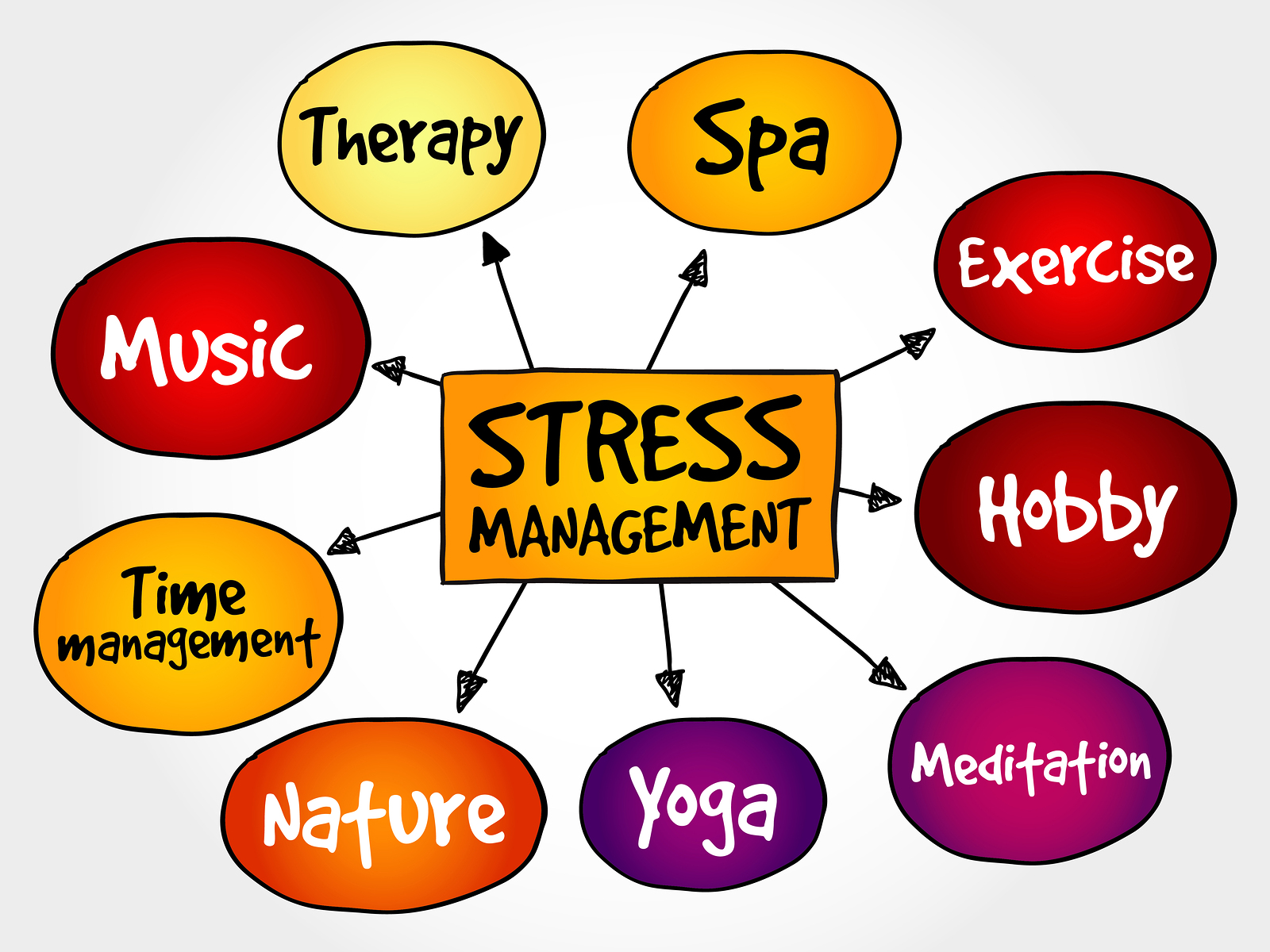What is Stress?
Stress (mental and physical) is the body’s process of coping with something that may cause fear. Stress is a fight or flight (fight or flight) physiological response and helps a person determine how to respond to an event or stimulus – whether to cope or avoid. A certain amount of stress is needed to help people test their endurance and realize their potential. However, an unreasonable amount of stress causes human suffering and leads to exhaustion of mental energy. Internal and external factors can cause stress and sometimes a combination of both. Family conflicts, work and academic pressures, and money create externalities. Low self-esteem, depression and inflexibility are some of the internal factors. It can be active in any form.
What is Stress Management?
Stress, as we know it, is a feeling we all have every day. So, is all stress bad? Or is it okay to have stress? Do we know what stress is? Stress is primarily a physical response. So when our body gets all this from our environment, and those make us feel attacked, we start reacting to those in our own ways. Our body is chemically tuned to go to “fight or flight” mode under stressful and difficult situations. Hormones such as adrenaline, cortisol and epinephrine are released in those situations, which allows us to fight or fight the stress-evoking situations. These hormones initiate a lot of reactions in our body, from blood being diverted to muscles to shutting down unnecessary bodily functions such as digestion so if you are wondering why you always end up having indigestion when under stress, it is simply because your body doesn’t feel necessary to digest.
What, then, actually causes stress? Stress is all that is coming from your internal and external environment. External Factors include your physical environment, which includes your job, relationships, home, challenges, and difficulties of daily life. On the other hand, internal factors determine your body’s ability to respond to and deal with external stress-inducing factors. So, your internal factors depend on your nutritional status, overall health and fitness levels, emotional well-being and the amount of sleep and rest you give your body.
Now that we have some idea about stress and its causes and effects, let’s learn how to reduce, manage and deal better with life when stressed. It is important to know that stress, how common it may sound, has varied effects on each individual. Thus, the management also needs to be unique for everyone and it is most likely that your friend’s management technique might not be effective for you.
The types of stress that you might come across are:-
Acute stress– Acute stress is the type of stress that throws you off-balance momentarily. This is the type of stress that comes on quickly and often unexpectedly and doesn’t last too long, but requires a response and shakes you up a bit, like an argument with someone in your life, or an exam for which you don’t feel adequately prepared.
Your body’s stress response is triggered with acute stress, but you can reverse it with quick relaxation techniques, and then go back to your day feeling less stressed again. These stress relievers can help you to relax and more quickly recover from acute stress.
- Breathing Exercise
- Cognitive Reframing
- Progressive Muscle Relaxation
- Mini-Meditation

Chronic Stress– Chronic stress is the type of stress that tends to occur on a regular basis2. This type of stress may leave you feeling drained, and can lead to burnout if it’s not effectively managed. This is because, when the stress response is chronically triggered and the body is not brought back to a relaxed state before the next wave of stress hits, the body can stay triggered indefinitely. Chronic stress can lead to a host of health issues, including cardiovascular disease, gastrointestinal issues, anxiety, depression, and a variety of other conditions. This is why it is important to effectively manage chronic stress. Managing this type of stress often requires a combination approach, with some short-term stress relievers (like those for acute stress), and some long-term stress relief habits that relieve overall stress. (Different emotion-focused coping techniques and solution-focused coping techniques are important as well.)
- Exercise
- Maintaining a Healthy Diet
- Cultivate Supportive Relationships
- Regular Meditation
- Pursuing a Hobby
Emotional Stress-The pain of emotional stress can hit harder than some other types of stress. For example, the stress that comes from a conflicted relationship tends to bring a greater physical reaction and a stronger sense of distress than the stress that comes from being busy at work. Therefore, it is important to be able to manage emotional stress in effective ways. Strategies that help you to process, diffuse, and build resilience toward emotional stress can all work well, and different approaches can work in different situations. Here are some ways to manage emotional stress.
- Writing a journal and noting down the emotions
- Talking to a trusted one
- Practicing mindfulness can help you calm down the present emotions
- Consult a Therapist if necessary
Burnout-Burnout is the result of the prolonged chronic stress of situations that leave people feeling a lack of control in their lives. Certain conditions of a job can create a greater risk of burnout, including not only a high level of demands, but also unclear expectations, lack of recognition for achievements, and a high level of risk of negative consequences when mistakes are made. Once you reach a state of burnout, it is difficult to maintain motivation to work and accomplish what you need to accomplish, and you can feel chronically overwhelmed. In addition to the strategies that work well for chronic stress and emotional stress, the following strategies can help you to come back from a state of burnout—or prevent it entirely.
- Take some time off
- Get more humor in life
- Try to find fun at work
- Try and utilize the time out of work to rejuvenate yourself
It is true that some simple daily management techniques can make a huge difference in your life and can help you deal better with stress. But sometimes it can be hard to cope with stress on a regular basis and when none of the daily management works it is recommendable to go a therapist. Some therapies that work best for stress are :-
- CBT– Cognitive Behavioural Therapy– Therapy that helps you understand your thought patterns, recognize your trigger points and identify positive actions you can take.
- MBSR- Mindfulness-Based Stress Reduction- – Mindfulness-Based Stress Reduction based stress reduction (MBSR) combines mindfulness, meditation and yoga with a particular focus on reducing stress.
Stress management involves adopting various strategies to reduce and cope with stress effectively.
Here are 16 techniques that can help you manage stress –
1–Limit Caffeine and Alcohol: Reduce the consumption of caffeine and alcohol, as they can exacerbate stress and anxiety.
2– Social Support: Connect with friends, family, or support groups to share feelings and experiences, which can help reduce stress.
3–Creative Outlets: Engage in creative activities such as painting, writing, or playing music to express emotions and relieve stress.
4–Nature and Outdoors: Spend time in nature or engage in outdoor activities to promote relaxation and reduce stress.
5–Practice Gratitude: Keep a gratitude journal to focus on the positive aspects of life and cultivate a more positive outlook.
6–Limit Screen Time: Reduce excessive exposure to screens and digital devices, as they can contribute to stress and anxiety.
7– Sleep Quality: Prioritise getting enough restful sleep each night, as proper sleep is essential for managing stress.
8–Professional Help: If stress becomes overwhelming or persistent, seek help from a mental health professional
9. Listening to Music: Listen to calming or uplifting music to reduce stress and improve mood.
10. Creative Outlets: Engage in creative activities such as painting, writing, or playing music to express emotions and relieve stress.
11. Positive Self-Talk: Replace negative thoughts with positive affirmations and self-encouragement.
12. Social Support: Connect with friends, family, or support groups to share feelings and experiences, which can help reduce stress.
13. Aromatherapy: Use essential oils or scents known for their calming properties, such as lavender or chamomile, to promote relaxation.
14. Limit Caffeine and Alcohol: Reduce the consumption of caffeine and alcohol, as they can exacerbate stress and anxiety.
15. Laugh and Humor: Watch a funny movie or engage in activities that make you laugh to release tension and improve mood.
16. Quality Sleep: Prioritise getting enough restful sleep each night, as proper sleep is essential for stress management.
Remember that different techniques work for different people, so find the ones that resonate with you and integrate them into your daily routine. Consistency is key when it comes to stress relief techniques. Practice these strategies regularly to build resilience and better cope with stressors as they arise. If stress becomes overwhelming or persistent, do not hesitate to seek professional support from a counsellor or mental health professional.
When thoughts reach such an extreme level that the body is affected and bodily functions are disrupted, the mental state is called anxiety. Anxiety usually occurs alone or in association with three categories: anxiety disorders, obsessive-compulsive disorder and other related conditions, and anxiety associated with trauma and stress. It can be of different levels like mild, moderate, extreme, and panic level. The main causes of anxiety are psychological or medical, illness-related, alcoholism, and drug abuse. Moreover, family history can be a major cause of concern. Symptoms include palpitations (increased heart rate), feelings of dread, excessive sweating, nausea and dizziness, and insomnia. The most common methods of treatment are a combination of drugs and psychotherapy (psychotherapy). Staying aware and making lifestyle changes using necessary therapy for anxiety is difficult, as symptoms are very likely to return. Anxiety can lead to complications, including attention deficits and inability to perform responsibilities, medical problems such as heart disease, insomnia and indigestion, and mental issues and problems.
What is Anxiety?
When thoughts reach such an extreme level that the body is affected and bodily functions are disrupted, the mental state is called anxiety. Anxiety usually occurs alone or in association with three categories: anxiety disorders, obsessive-compulsive disorder and other related conditions, and anxiety associated with trauma and stress. It can be of different levels like mild, moderate, extreme and panic levels. The main causes of anxiety are psychological or medical, illness-related, alcoholism, and drug abuse. Moreover, family history can be a major cause of concern. Symptoms include palpitations (increased heart rate), feelings of dread, excessive sweating, nausea and dizziness, and insomnia. The most common methods of treatment are a combination of drugs and psychotherapy (psychotherapy). Staying aware and making lifestyle changes using necessary therapy for anxiety is difficult, as symptoms are very likely to return. Anxiety can lead to complications, including attention deficits and inability to perform responsibilities, medical problems such as heart disease, insomnia and indigestion, and mental issues and problems.
How to Manage Anxiety: Tips for a Happier Life
As someone who has faced the challenges of anxiety, I understand the impact it can have on daily life. Over the years, I’ve learned valuable tips that have helped me find balance and live a more fulfilling life. I am sharing these with you in the hope that they may be beneficial:
✔ Regular Exercise: Engage in physical activity to reduce stress and uplift your mood.
✔ Relaxation Techniques: Practise deep breathing or meditation to calm the mind and ease anxiety.
✔ Mind Your Consumption: Avoid substances like caffeine and alcohol that can worsen anxiety.
✔ Prioritise Sleep: Create a sleep-conducive environment and practice good sleep hygiene for better rest. Sleep deprivation can heighten anxiety.
✔ Share Your Feelings: Talking to someone about your concerns can alleviate anxiety and bring relief.
✔ Embrace Routine: Maintaining a regular schedule fosters a sense of control and reduces anxiety.
✔ Consider Therapy: Professional counseling can be incredibly helpful in working through anxiety and developing coping strategies.
✔ Face Your Fears: Confronting anxieties head-on can reduce long-term anxiety.
✔ Nurture Physical Health: A healthy diet, exercise, and managing medical conditions can positively impact anxiety.
✔ Mindfulness Matters: Embrace mindfulness and focus on the present to improve overall well-being.
To sum up the knowledge, stress needs to be managed when it is hampering the regular activity which falls under DISTRESS. We also encounter EU STRESS which is the positive stress and that on the contrary, helps us to work and stay motivated. So getting stressed is not always a negative feeling. It may be neutral or even positive. So the next time you stress about your stress, use the simple techniques and give stress a chance to heal itself.
You can also get in touch with Mindyog ( Call: 90830 28297 )



